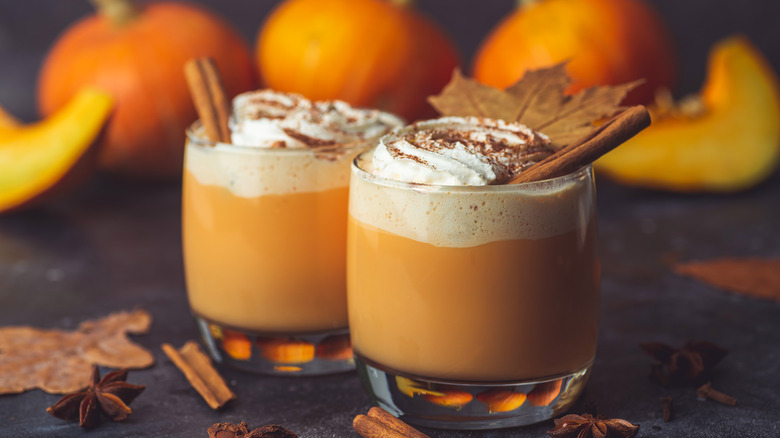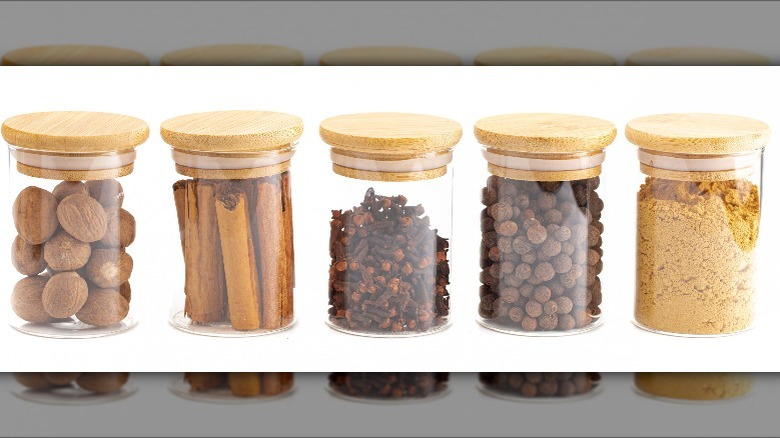Why Your Pumpkin Spice Craving Might Actually Be Healthy
When the air starts getting chilly, the trees' leaves start changing colors, and nights start getting darker faster, it's a telltale sign that autumn is upon us. With the new season comes an overload of seasonally flavored food items. The most popular fall products and flavors include salted caramel, apple, maple, chai, butternut squash, and the most beloved flavor of fall: pumpkin spice. In addition to inducing warm, comfy, autumnal feelings, pumpkin spice might actually be good for you.
However, a lot of seasonal, pumpkin spice-flavored items are full of sugar and other processed ingredients, so don't think that a PSL a day will keep the doctor away. Instead, dietetic interns Emily Hu and Andrea Soung spoke to Cedars Sinai Medical Center and suggested using pumpkin spice in a roasted pumpkin curry or soup, using the flavoring as a dry rub for various meats, sprinkling the spice on top of oatmeal, cereal, or yogurt, or trying pumpkin puree instead of mashed potatoes. But just how healthy is the iconic pumpkin spice blend really?
Each ingredient in the pumpkin spice blend has its own health benefits
Pumpkin spice is a blend of cinnamon, ginger, nutmeg, and clove, with some variations also including allspice and cardamom. Each of the components in the pumpkin spice blend have several health benefits, plus they contain rich antioxidants. According to Cedars Sinai Medical Center, cinnamon could reduce cholesterol and blood pressure levels, and ginger may help soothe aches from osteoarthritis and menstrual cramps, as well as ease nausea and improve gut health.
Nutmeg contains fiber, antioxidants, antimicrobial properties, vitamins A, E, and C, iron, and magnesium. It may support a healthy digestive system, as well as help you sleep better and improve your mood (via WebMD). Cloves also have antimicrobial properties and are high in fiber and antioxidants — they may also support liver and bone health, keep blood sugar levels down, and minimize the risk of stomach ulcers (per Healthline).
Full of powerful antioxidants and inflammatory properties, allspice may help with headaches, toothaches, menopause, and muscle cramps. It may also aid in issues with indigestion (via Healthline). According to Medical News Today, cardamom is similar to ginger and has antimicrobial properties that can help with gum disease and bad breath. This unique spice may also help support a healthy heart and liver. Pumpkins are actually healthy, too. Per Healthline, pumpkins are high in vitamin A and beta carotene, which help with immunity, plus skin and eye health.
So, your PSL might not be that healthy, but pumpkin spice itself offers a multitude of potential benefits.

